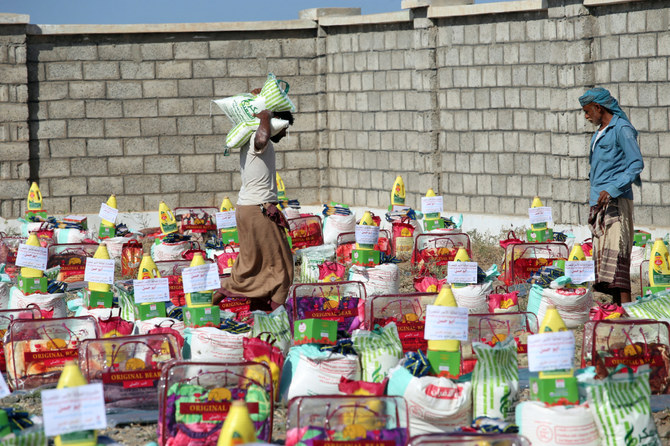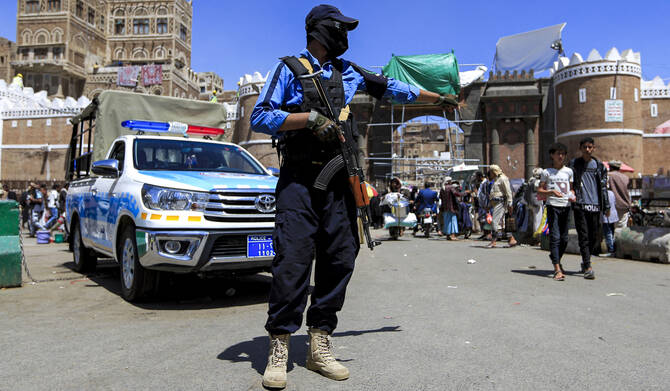Ephrem Kossaify
NEW YORK: The UN has warned that a critical funding shortfall is threatening the future of the humanitarian assistance that provide a vital lifeline for millions of vulnerable people Yemen.
The lack of funds resulted in the reduction or closure of about two-thirds of the organization’s major aid programs in January, with further cuts expected in the coming months unless additional support is urgently received.
Already the cuts mean that many families will receive less than half of their minimum daily food requirements and more severe restrictions will soon be unavoidable; some people will be cut off completely from food aid programs, while school meals programs and treatment of malnutrition will also be cut.
“Food assistance is being scaled back at a time when hunger remains alarmingly high,” said Farhan Haq, a spokesperson for UN Secretary-General Antonio Guterres. “By March, 11 million people will be forced to rely on reduced food rations, with only two million people receiving full rations.
“Water and sanitation services could soon be turned off in 15 major cities, affecting 4.6 million people. Over one million women and girls will soon no longer have access to reproductive health and gender-based violence services.
“Millions more stand to lose access to other vital services, including essential healthcare, nutrition, shelter, cash assistance and education.”
Haq called for urgent efforts to boost aid funding “to avoid a sudden surge in people’s suffering” in Yemen.
The country is experiencing one of the worst-ever humanitarian crises, with more than 20 million people in need of some level of aid or protection.
The crisis in Yemen, primarily driven by conflict and economic collapse, has been heightened by the effects of the COVID-19 pandemic, heavy rain and flooding, and escalating hostilities.
The UN’s World Food Program previously warned that it is running out of the money it needs to continue to provide food aid for 13 million Yemenis and, as a result, 8 million will start to get reduced rations. The remaining 5 million, who are at risk of famine, will remain on full rations for now.
“The reductions come at the worst possible time for families in Yemen who are dependent on food assistance to survive,” said the United Nations Office for the Coordination of Humanitarian Affairs. It blamed the food crisis on the collapse of the economy amid currency devaluation and hyperinflation, and the continuing fighting in several areas that has forced families to flee for their lives.
Corinne Fleischer, the WFP’s regional director for the Middle East and North Africa, said: “Every time we reduce the amount of food, we know that more people who are already hungry and food insecure will join the ranks of the millions who are starving.
“But desperate times call for desperate measures and we have to stretch our limited resources and prioritize, focusing on people who are in the most critical state. The Yemeni people are now more vulnerable than ever, reeling from relentless conflict and the deepening economic crisis that has pushed millions into destitution.
“WFP food stocks in Yemen are running dangerously low at a time when budgets for humanitarian crises around the world are stretched to the limit. We desperately need donors, who were so generous in the past, to work with us to avoid this looming hunger catastrophe.”
The WFP said it needs $813 million to continue its work through May, and US$1.97 billion throughout 2022 to “deliver vital food assistance to families on the brink of famine.”






















